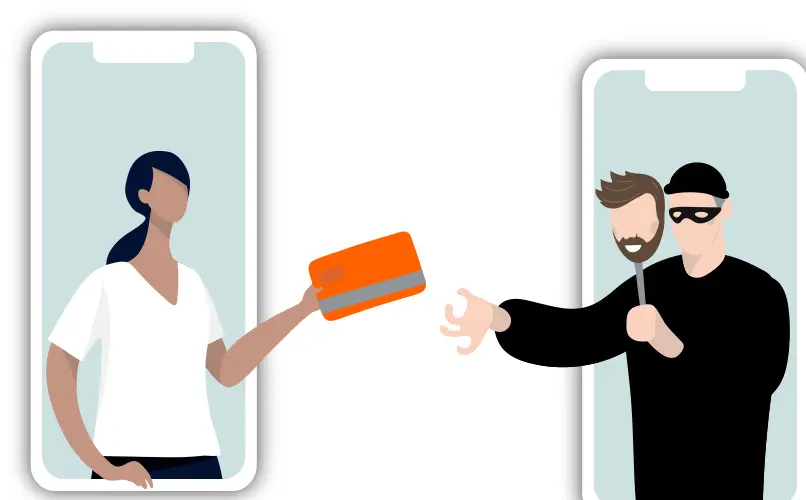Beware of the stranger on the phone, it could be a financial scammer. Nowadays, fraudsters are increasingly picking up the phone and using old-school tricks to steal your money. They could either be pretending to be a government worker, a family member in trouble. Investigations showed that impostor scams had overtaken identity theft last year for the first time, making financial scams the second-most reported fraud behind debt-collection scams. According to the U.S. Federal Trade Commission, it always begins with the phrase “fake debt collectors say a loan payment is due.”

In total, nearly 1.3 million fraud-related complaints were reported last year, a 2% increase over 2015. Most complainants said they had been scammed after a phone call. Investigations have shown that this is because fraudsters need to build some kind of relationship with the victim or victims in order to convince them to hand over money.

Katherine Hutt, a spokeswoman at the Better Business Bureau said victims paid out a total of $744 million to fraudsters last year, with the average one losing more than $1,100, according to the FTC. The best way to protect yourself is to get familiar with the tricks these thieves use. Fraudsters and scammers keep recycling well-known scenarios, but change small details.
Ways to Spot Scamming- Method of Scamming
Method #1: A Loved One Is In Trouble Scam
HOW THIS SCAM WORKS: The victims usually get a call from an impostor who is pretending to be a family member in trouble and who needs cash immediately. These Impostors can be convincing. According to the Michigan attorney general, they may go with the very convincing storyline that caused grandparents in Michigan to wire-transfer more than $30,000 to thieves posing as a grandson in need of money to be bailed out of a Canadian jail…

The Solution: Always be suspicious of any calls from supposedly distressed relatives who is hesitant to give you their names. When they hang up or end the phone call with you, try calling the said family member or any other family members you think might know where they are with the phone numbers you have to see if they actually need help.
Method #2: Your Computer Is Broken Scam
HOW THIS SCAM WORKS: Financial scammers use this method as well; they call claiming to be from tech support and that your computer is broken or infected with a virus. They pretend to be from a big company such as Google, Amazon, Microsoft, etc. Some may even ask you to open some files on your personal computer, and once you do this. It will help them gain control of your computer. Perhaps they will ask for your credit card information to charge you for some phony services or software. Besides a phone call, the Federal Trade Commission (FTC) said some fraudsters will even use a pop-up message on your computer that says a virus has been detected with a phone number to call.

HOW TO PROTECT YOURSELF: You can start by ignoring any calls or pop-ups saying you have a virus on your PC or phone. These big companies don’t usually have a way of know when your PC has a a technical issues and won’t contact you. However, if you do run into a problem and fall for this type of financial scam, We recommend that you scan your personal computer with recommended security software and change all your passwords.
METHOD #3: You Owe The Government Scam
HOW THIS SCAM WORKS: This is anther method fraudsters use, they pretend to be from the Internal Revenue Services (IRS) or another government agency. They would claim you owe money and would pressure you to wire money or send them a prepaid debit card that you loaded up with cash. Most of them may threaten to have you arrested or sued if you don’t pay the debt. The FTC have reportedly said scammers often change the agency they pretend to be calling from in other to carry out financial scams, such as the immigration office. Sometimes they won’t ask for money, and will just try to get your social security number or other personal information over the phone.

HOW TO PROTECT YOURSELF: You should know that no government agency will ask you to wire money or send a prepaid debit card to pay back a debt, so hang up if you’re asked to do such a thing. However, if you are doubtful if the caller is a scammer, the FTC recommends looking up the government agency’s number online and calling the agency yourself to see if there is an issue.
Conclusion
Now you know various way fraudsters and financial scammers operates, you know better how to protect yourself from such financial scams. The goal here is not to be scammed ever. If you had similar experience or know someone who is a vctim, leave us a comment below. Stay safe and thank you.
Read More
How to build a Smart Hydroponics IoT Project
How to Design Smart Infrared Remote Controlled Gate System
Anti-Theft and Burglar System with SMS Notification
Solar-Powered Smart Irrigation System with SMS


